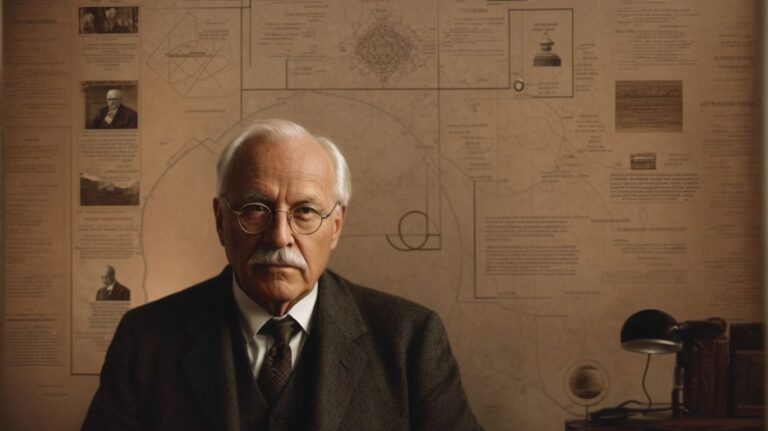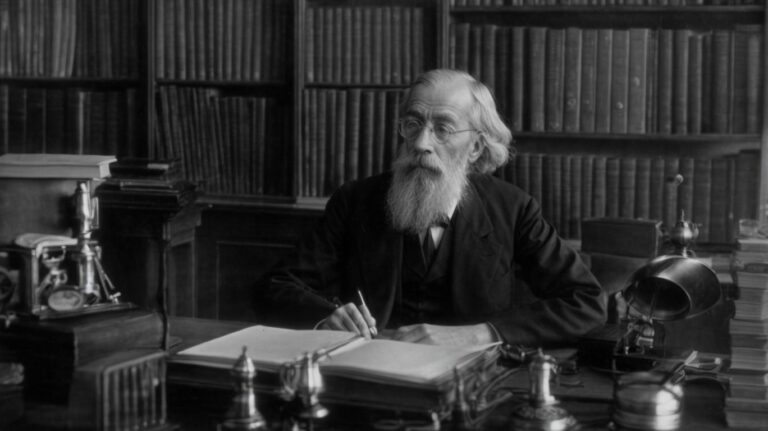The cognitive approach in psychology has revolutionized the way we understand the human mind and behavior. This article explores the influential figures who have shaped this approach, including Jean Piaget, Lev Vygotsky, Aaron Beck, George Miller, and Ulric Neisser.
Their contributions range from developing cognitive development and social development theories to creating cognitive therapy and advancing the field of cognitive psychology. Discover how their work continues to influence psychology today, from the importance of cognition in understanding behavior to the use of cognitive therapies in treating mental health issues.
Contents
- 1 What Is the Cognitive Approach in Psychology?
- 2 Who Are the Pioneers of the Cognitive Approach in Psychology?
- 3 What Are the Contributions of These Influential Figures?
- 4 How Has the Cognitive Approach Influenced Psychology Today?
- 5 Frequently Asked Questions
- 5.1 Who are the influential figures of the cognitive approach in psychology?
- 5.2 What is the cognitive approach in psychology?
- 5.3 How did George Miller contribute to the cognitive approach in psychology?
- 5.4 Which influential figure in the cognitive approach is known for his development of the theory of cognitive development?
- 5.5 What is Ulric Neisser’s contribution to the cognitive approach in psychology?
- 5.6 How did Noam Chomsky influence the cognitive approach in psychology?
What Is the Cognitive Approach in Psychology?
The cognitive approach in psychology focuses on studying mental processes such as attention, memory, and problem-solving to understand human behavior.
These mental processes are the main focus of cognitive psychology, which seeks to uncover how individuals perceive, think, and solve problems. Cognitive theory posits that cognition influences behavior and emotions, highlighting the importance of understanding these mental activities. By investigating how people acquire, store, and retrieve information, cognitive psychologists gain insights into decision-making, language processing, and problem-solving. This theoretical framework emphasizes the role of internal mental structures and processes in shaping behavior, providing valuable tools to analyze and predict human actions.
Who Are the Pioneers of the Cognitive Approach in Psychology?
The pioneers of the cognitive approach in psychology include influential figures such as Jean Piaget, who revolutionized our understanding of cognitive development and the processes underlying it.
Piaget’s groundbreaking work on cognitive development emphasized the active role of individuals in constructing their understanding of the world. His theory highlighted the stages of development that children go through, starting from sensorimotor to formal operational stages.
Another key figure in cognitive psychology is Aaron Beck, known for his cognitive therapy approach to treating depression. Beck’s work emphasized the role of distorted thinking patterns in influencing emotional states and developed cognitive restructuring techniques to challenge and change these negative thought patterns.
Jean Piaget
Jean Piaget, a renowned figure in cognitive psychology, introduced the formal operational stage in his theory of cognitive development, shedding light on how children develop logical thinking abilities.
This stage, typically occurring during adolescence, marks a significant milestone in a person’s ability to engage in abstract thinking and hypothetical reasoning. Piaget emphasized that individuals in this stage can systematically manipulate ideas and solve problems through logic and reasoning.
Key characteristics of the formal operational stage include the ability to think about possibilities, think about abstract concepts, and reason about cause and effect relationships. This stage is crucial in shaping an individual’s cognitive development by enabling them to think critically and analyze complex situations.
Lev Vygotsky
Lev Vygotsky, another notable figure in cognitive psychology, contributed to the field with his social development theory, emphasizing the role of social interactions in cognitive growth.
Vygotsky’s social development theory is centered around the idea that children learn and develop through their interactions with others, particularly more skilled individuals within their social environment. This concept highlights the importance of collaborative learning experiences in cognitive development. According to Vygotsky, the interactions children have with parents, teachers, and peers play a crucial role in shaping their cognitive abilities.
Social interactions serve as a catalyst for cognitive growth, allowing individuals to acquire new knowledge, skills, and ways of thinking through dialogue, cooperation, and shared activities. Through these social engagements, individuals can internalize information and advance their cognitive capacities.
Aaron Beck
Aaron Beck is recognized for his pivotal role in the development of cognitive therapy, a form of psychotherapy that focuses on changing negative thought patterns and beliefs to improve mental health.
Beck’s contributions to cognitive therapy have revolutionized the field of mental health treatment by introducing innovative approaches to addressing psychological disorders. By emphasizing the role of mental processes in shaping emotional states and behaviors, cognitive therapy aims to help individuals identify and challenge distorted thinking patterns that contribute to their distress.
The core principles behind cognitive therapy involve collaborative empiricism, which encourages therapist-client partnership in examining and testing the accuracy of cognitions. Through structured interventions such as cognitive restructuring and behavioral experiments, individuals are guided to develop more adaptive ways of interpreting and responding to life situations.
George Miller
George Miller was instrumental in introducing the concept of working memory, highlighting its role in temporarily storing and manipulating information in cognitive psychology.
Working memory, as elucidated by Miller, is a crucial component of cognitive processes, aiding in tasks such as decision-making, problem-solving, and comprehension.
It functions as a mental workspace that actively holds information for short periods, allowing individuals to juggle multiple pieces of data simultaneously.
This aspect of working memory comes into play when individuals need to remember a phone number for a short time before dialing it or follow complex instructions step by step.
Ulric Neisser
Ulric Neisser played a significant role in the cognitive revolution within psychology, advocating for the study of mental processes and challenging behaviorism’s dominance.
Neisser’s pivotal contributions shaped the landscape of cognitive psychology by emphasizing the importance of internal mental processes such as perception, memory, and thinking. His work highlighted the limitations of behaviorism, which solely focused on observable behaviors, and underscored the significance of understanding how the mind processes information. By advocating for a shift towards studying cognition, Neisser laid the groundwork for a new era in psychology that prioritized exploring the intricacies of the human mind.
What Are the Contributions of These Influential Figures?
These influential figures have made profound contributions to the field of psychology, from advancing theories of cognitive development to revolutionizing therapy approaches through cognitive interventions.
One notable figure, Jean Piaget, is renowned for his pioneering work in developmental psychology, particularly cognitive development. His groundbreaking research on how children construct knowledge has significantly influenced educational practices worldwide.
Erik Erikson, another prominent psychologist, is widely recognized for his contributions to social development theory. His theory of psychosocial development highlights the importance of social relationships and identity formation.
In the realm of cognitive therapy, Aaron Beck’s innovative cognitive restructuring techniques have transformed the way therapists approach and treat psychological disorders by targeting dysfunctional thought patterns.
Development of Cognitive Development Theory
The development of cognitive development theory by Piaget and Vygotsky has significantly enhanced our understanding of how individuals acquire knowledge, construct meaning, and develop cognitive abilities.
Piaget’s theory emphasizes the stages of cognitive development, suggesting that children progress through distinct phases such as sensorimotor, preoperational, concrete operational, and formal operational. Each stage represents a different way of thinking and understanding the world.
On the other hand, Vygotsky’s sociocultural theory highlights the importance of social interactions in cognitive development. He introduced the concept of the zone of proximal development, which is the difference between what a learner can do without help and what they can achieve with guidance from a more knowledgeable individual.
Development of Social Development Theory
The social development theory introduced by Vygotsky emphasizes the critical role of social interactions in fostering cognitive growth and advancing individuals’ mental abilities.
Vygotsky believed that interactions with more knowledgeable peers or adults were instrumental in developing a person’s understanding of complex concepts. Through collaborative activities and discussions, individuals can internalize new ideas and skills beyond their current level of competence. These social interactions provide a scaffold for cognitive development, allowing individuals to reach higher levels of thinking through guidance and support.
Vygotsky’s theory underscores the importance of cultural and social contexts in shaping an individual’s cognitive growth. The shared experiences, values, and norms within a community influence how knowledge is constructed and transmitted among its members.
Creation of Cognitive Therapy
The creation of cognitive therapy by Aaron Beck has revolutionized the treatment of mental health issues by focusing on modifying negative thought patterns and enhancing positive beliefs.
Cognitive therapy is based on the principle that our thoughts influence our feelings and behaviors. By identifying and challenging irrational, negative thoughts, individuals can reframe their perspectives and improve their mental well-being.
Beck’s cognitive therapy techniques include cognitive restructuring, behavioral experiments, and guided discovery. These methods help clients gain insight into their thought processes and develop more adaptive coping strategies.
The core principles of cognitive therapy involve collaboration between therapist and client, goal-setting, and the importance of tracking progress. Beck’s approach emphasizes the present moment and actively working to change unhelpful thought patterns.
Introduction of the Concept of Working Memory
George Miller’s introduction of the concept of working memory has greatly enriched our understanding of cognitive processes, particularly in terms of information storage and manipulation.
Working memory, as conceptualized by Miller, functions as a cognitive system responsible for holding and processing information needed for complex tasks and problem-solving. It plays a crucial role in organizing thoughts, making decisions, and guiding behavior. Unlike short-term memory, working memory includes active manipulation of information rather than just passive storage. This dynamic process allows individuals to mentally work with information, update it, and use it for various cognitive tasks efficiently.
Development of the Field of Cognitive Psychology
The development of the field of cognitive psychology, spearheaded by influential figures like Ulric Neisser, has significantly advanced our understanding of mental processes and the human mind.
This branch of psychology emerged during the 1950s and 1960s as a response to behaviorism, which focused on observable behaviors rather than internal mental processes. The cognitive revolution marked a shift in focus towards exploring processes like memory, perception, language, and problem-solving. Researchers in cognitive psychology aim to understand how individuals acquire, process, store, and retrieve information. This field has expanded to encompass various subfields such as cognitive neuroscience, cognitive development, and cognitive neuropsychology, each shedding light on different aspects of the human mind.
How Has the Cognitive Approach Influenced Psychology Today?
The cognitive approach has had a profound impact on modern psychology, shaping the understanding of behavior through cognition, influencing therapeutic practices, and driving advancements in cognitive neuroscience.
One of the key aspects of the cognitive approach is its emphasis on how individuals perceive, interpret, and process information, which has revolutionized the field of psychology by shedding light on the role of mental processes in behavior. This approach has led to the development of cognitive-behavioral therapy, a widely used therapeutic intervention that targets thought patterns and behaviors to treat various mental health conditions.
The influence of the cognitive approach extends to cognitive neuroscience, where researchers study how the brain processes information, memory, decision-making, and perception. This interdisciplinary approach has opened up new avenues for understanding the neural mechanisms underlying cognitive functions and disorders.
Importance of Cognition in Understanding Behavior
Understanding behavior through cognition has become a central tenet of the cognitive approach, highlighting the significance of cognitive processes in shaping human actions and decisions.
In the realm of psychology, cognition plays a pivotal role in understanding how individuals perceive, interpret, and respond to the world around them. By diving into the intricate mechanisms of cognitive processes such as memory, attention, problem-solving, and language comprehension, researchers can gain valuable insights into the complexities of human behavior.
The study of cognition aids in elucidating the underlying mental frameworks that influence decision-making processes. These cognitive frameworks influence how individuals evaluate situations, weigh options, and ultimately make choices, showcasing the intricate interplay between cognitive processes and behavioral outcomes.
Use of Cognitive Therapies in Treating Mental Health Issues
The utilization of cognitive therapies in treating mental health issues, as pioneered by Aaron Beck, has transformed therapeutic interventions by focusing on cognitive restructuring and positive belief reinforcement.
Cognitive therapies, such as Cognitive Behavioral Therapy (CBT) and Rational Emotive Behavior Therapy (REBT), aim to help individuals identify and challenge negative thought patterns that contribute to mental health disorders. By employing various techniques like identifying cognitive distortions and conducting thought records, these therapies facilitate a shift towards healthier thinking patterns. Cognitive restructuring involves replacing irrational beliefs with more realistic and adaptive ones, fostering resilience and coping mechanisms. Belief modification techniques emphasize changing deep-seated core beliefs that influence emotions and behaviors, ultimately promoting mental well-being.
Advancements in Cognitive Neuroscience
Advancements in cognitive neuroscience have propelled our understanding of mental functions, cognitive processes, and brain-behavior relationships, offering insights into the intricacies of the human mind.
The field of cognitive neuroscience delves deep into the workings of the brain, exploring how thoughts, memories, emotions, and behaviors are all intricately interconnected.
Through advanced imaging techniques such as fMRI and EEG, researchers can observe the brain’s activity in real-time, providing valuable data on how various cognitive processes unfold.
Recent studies in cognitive neuroscience have shed light on how different regions of the brain specialize in specific functions, contributing to our comprehension of complex cognitive abilities like decision-making, language processing, and problem-solving.
Frequently Asked Questions
Who are the influential figures of the cognitive approach in psychology?
Some of the most influential figures of the cognitive approach in psychology include George Miller, Ulric Neisser, Jean Piaget, and Noam Chomsky.
What is the cognitive approach in psychology?
The cognitive approach in psychology focuses on how people think, perceive, and process information. It views the mind as a complex information-processing system and emphasizes the role of internal mental processes in behavior.
How did George Miller contribute to the cognitive approach in psychology?
George Miller is known for his work on the theory of working memory and for coining the term “chunking” in relation to memory processes. He also helped establish cognitive psychology as a distinct field of study.
Which influential figure in the cognitive approach is known for his development of the theory of cognitive development?
Jean Piaget is known for his extensive research on child development and his theory of cognitive development, which proposes that children’s thinking and understanding of the world changes as they grow and experience the world around them.
What is Ulric Neisser’s contribution to the cognitive approach in psychology?
Ulric Neisser is considered the father of cognitive psychology for his book “Cognitive Psychology” which provided a comprehensive overview of the field. He also conducted research on perception, memory, and problem-solving.
How did Noam Chomsky influence the cognitive approach in psychology?
Noam Chomsky is known for his theory of universal grammar, which suggests that all humans have an innate language acquisition device that allows them to learn language. His work has had a significant impact on the study of language and cognition.



